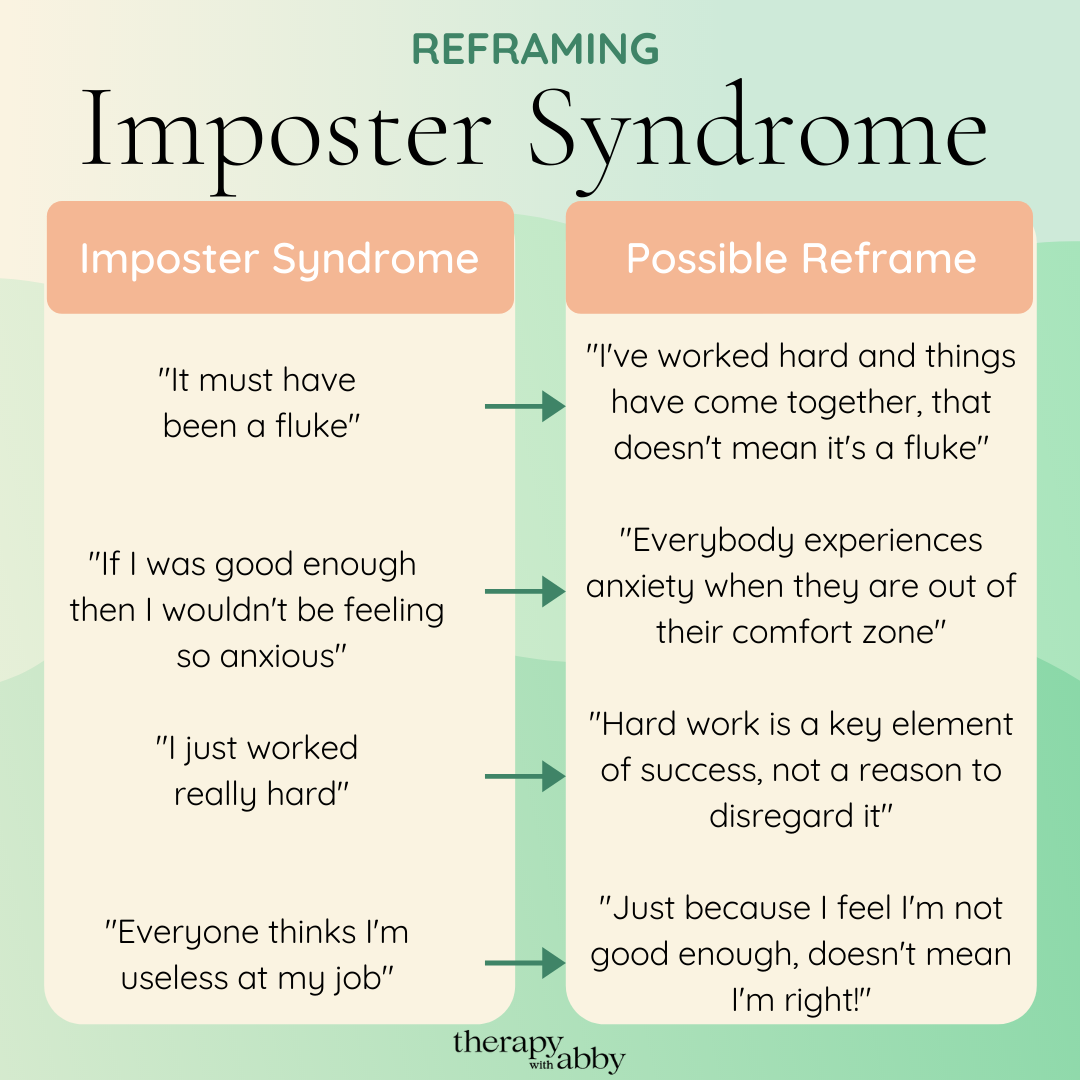How to Manage Imposter Syndrome in a New Job
Have you recently landed a promotion or a new job and feel like you don’t deserve it? You may be experiencing imposter syndrome.
So, you’ve landed your dream job but instead of feeling excited and raring to go, you’re struck with a feeling in the pit of your stomach telling you that you’re utterly unqualified for the job and that they’ve made a huge mistake hiring you.
Sound familiar? Don’t worry, you’re not alone!
This feeling of self-doubt and incompetency is known as imposter syndrome - a psychological pattern in which an individual doubts their accomplishments or talents and has a fear of being exposed as a "fraud", despite having evidence of outward success.
Imposter syndrome affects approximately 70% of people and it can arise at any time during our career - but it is commonly experienced when we’re starting something new or when we feel out of our comfort zone. This means, ironically, the further we go in our career, the more opportunities there are for imposter syndrome to rear its ugly head.
Here are a few tips to help you overcome imposter syndrome and regain your confidence as you begin your new job.
1. Acknowledge that everyone experiences anxiety
Feeling anxious when we start a new job is completely normal and healthy. What is important is how we interpret our anxiety. When “imposters” feel anxious about their new job, they believe it means they are a fraud and not up to the task. They falsely believe that if they were more capable and qualified then they wouldn’t be feeling like this. The truth is, everyone feels unsure of themselves sometimes. Confident people just recognise that it is normal and part of being human.
2. Identify your “Imposter” thoughts
“I don’t know what I’m doing”, “Everyone is more capable than me”, “People will soon realise I can’t do this.”
These are examples of classic “imposter” thoughts, which tend to be dramatic and absolute. In psychology, these thoughts are called ‘cognitive distortions’ – a term that means the way you’re thinking about something doesn’t necessarily match up with the reality of what’s going on. Although everyone has some cognitive distortions, they’re particularly common with people who experience imposter syndrome, and tend to fall into three categories:
🔸 Feeling like a fake: “It’s only a matter of time before I get exposed as a fraud” or “I fooled everyone.”
🔸 Attributing success to luck: “I just got lucky this time” or “They just didn’t have any other decent applicants.”
🔸 Discounting success: “I got a lot of help” or “I’m just good at interviews.”
Once you have acknowledged your imposter thoughts, try sharing them with someone you trust. These fears tend to fester when they’re hidden away and you may find comfort in having someone point out your irrational beliefs and remind you of your strengths.
3. Recognise that you don’t need to nail a new job right away
People prone to imposter syndrome tend to feel panicked when they’re not an expert at something right away, which is why starting a new job can be such a trigger. Remind yourself that you weren’t hired because you already know 100% of the job, but because you have the core competencies for the position and the ability to learn the rest.
4. Remind yourself of your achievements
Remember, you haven’t come this far because you’ve blagged it – you deserve it, and it’s healthy to remind yourself of this from time to time. Make a list of your skills, achievements and any positive feedback you’ve received from people you respect. Print it out or keep it as a note on your phone and use it as a reminder that none of this came your way by accident. Winging it can only get you so far – you’ve earned this.
5. Have faith in those who hired you
Your employers aren’t fools. They are aware of your experience and skills, and they made deliberate choices based on your knowledge and potential. Remember that most of your anxiety is your mind conjuring up events that are unlikely to happen - you really do deserve to be there.
6. Find a mantra
When imposter syndrome shows up it can be incredibly helpful to have some go-to phrases to tell yourself. Statements like “I deserve to be here” can be said out loud or in your head, and can re-programme the neural pathways in your brain and prevent automatic shortcuts to negative thought patterns.




